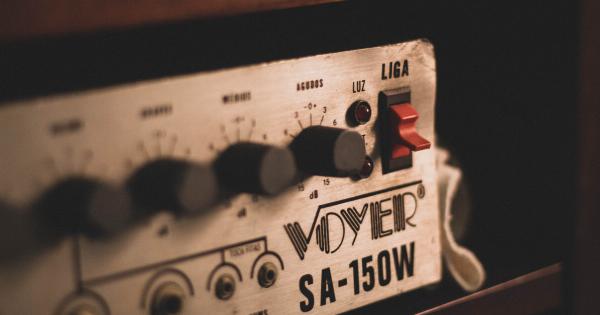Depression is quite common amongst heart patients and it can be quite a challenge to deal with. As per recent studies, heart patients with depression are at a higher risk of readmissions to the hospital and other adverse outcomes.
However, not all hope is lost because non-pharmacological options can be an effective way to manage depression in heart patients. These non-pharmacological options are safe and do not have any side effects, unlike traditional medications. In this article, we will discuss ten non-pharmacological options for heart patients with depression.
Cognitive Behavioral Therapy (CBT)
Cognitive-behavioral therapy (CBT) is an effective psychological treatment for depression. CBT helps to identify negative thinking patterns and replace them with positive ones.
In a randomized controlled study, the effectiveness of CBT in treating depression in heart patients has been demonstrated. CBT also helps to improve heart health by reducing stress levels in patients with cardiovascular disease. Overall, CBT is an effective non-pharmacological option for managing depression in heart patients.
Exercise
Exercise is an effective non-pharmacological option for managing depression in heart patients. Exercise helps to improve cardiovascular health and reduces the risk of heart disease.
Regular exercise also releases endorphins, which are natural mood-boosters that help to reduce stress and anxiety. Exercise can also help to improve sleeping patterns in heart patients with depression. Several studies have shown that exercise can be an effective treatment for depression in heart patients.
Yoga
Yoga is a form of physical exercise that has been shown to be effective in reducing depression in heart patients. Yoga involves practicing various postures and breathing exercises that help to relax both the body and the mind.
Yoga may also help to regulate heart rate and blood pressure, leading to better heart health in patients with cardiovascular disease. In a randomized controlled study, the effectiveness of yoga in treating depression in heart patients has been demonstrated.
Meditation
Meditation is a technique for calming the mind and body that has been shown to be effective in reducing depression in heart patients. Meditation involves focusing the mind on a particular thought, object or activity, such as deep breathing.
This helps to reduce stress and anxiety, leading to improved mental and physical well-being. In a randomized controlled study, the effectiveness of meditation in treating depression in heart patients has been demonstrated.
Music Therapy
Music therapy is a non-pharmacological treatment option that is effective in managing depression in heart patients. Listening to music has been shown to improve mood, reduce anxiety, and lower stress levels in patients with cardiovascular disease.
In a randomized controlled study, the effectiveness of music therapy in treating depression in heart patients has been demonstrated. Music therapy may also help to improve the overall quality of life in heart patients with depression.
Art Therapy
Art therapy is a form of therapy that involves the use of art to improve emotional and mental well-being. Art therapy is an effective non-pharmacological option for managing depression in heart patients.
Art therapy encourages patients to express their emotions through creative expression, helping to reduce stress and regulate emotions. In a randomized controlled study, the effectiveness of art therapy in treating depression in heart patients has been demonstrated. Overall, art therapy helps to improve the mental and emotional well-being of heart patients with depression.
Massage Therapy
Massage therapy is a non-pharmacological option that can be used to manage depression in heart patients. Massage therapy involves the manipulation of soft tissues in the body, which helps to relax the body and reduce stress levels.
Massage therapy can also improve blood circulation and regulate heart rate, leading to improved heart health in patients with cardiovascular disease. In a randomized controlled study, the effectiveness of massage therapy in treating depression in heart patients has been demonstrated.
Aromatherapy
Aromatherapy is the use of essential oils to improve emotional and mental well-being. Aromatherapy is an effective non-pharmacological option for managing depression in heart patients.
The use of essential oils has been shown to improve mood, reduce anxiety, and lower stress levels in patients with cardiovascular disease. In a randomized controlled study, the effectiveness of aromatherapy in treating depression in heart patients has been demonstrated.
Acupuncture
Acupuncture is a traditional Chinese medicine that involves the insertion of needles at specific points on the body to improve health and well-being. Acupuncture is an effective non-pharmacological option for managing depression in heart patients.
Acupuncture has been shown to improve blood circulation and regulate heart rate, leading to improved heart health in patients with cardiovascular disease. In a randomized controlled study, the effectiveness of acupuncture in treating depression in heart patients has been demonstrated.
Dietary Changes
Dietary changes are an effective non-pharmacological option for managing depression in heart patients.
A healthy diet that is rich in fruits and vegetables, whole grains, lean protein, and healthy fats can help to improve heart health and reduce the risk of heart disease. Certain foods, such as those that are high in omega-3 fatty acids, have been shown to be effective in reducing depression in heart patients.
In a randomized controlled study, the effectiveness of dietary changes in treating depression in heart patients has been demonstrated.
Conclusion
Depression is a common problem amongst heart patients, but the good news is that there are several non-pharmacological options that can be used to manage depression.
These options include cognitive-behavioral therapy, exercise, yoga, meditation, music therapy, art therapy, massage therapy, aromatherapy, acupuncture, and dietary changes. These options are safe, effective, and have no side effects. They can also improve heart health and reduce the risk of heart disease. If you are a heart patient with depression, consider trying these non-pharmacological options to manage your symptoms.





























